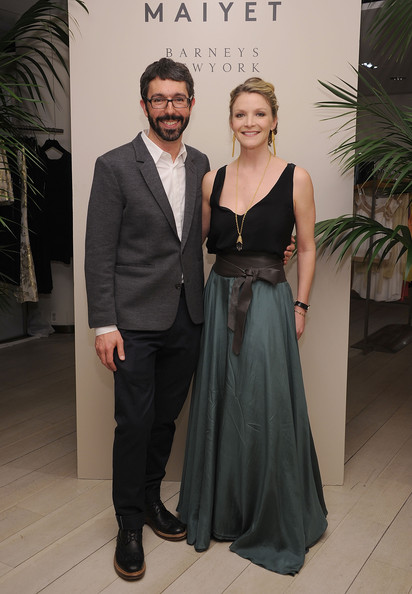Fashion label Maiyet has partnered with Nest, a non-profit organisation working with artisans in several parts of the world, to set up a state-of-art weaving centre in Varanasi from where it sources sumptuous silk.
Maiyet Spring Summer Collection 2013
Outreach programmes are essential image building tools that luxury brands often fall back on. There are several reasons for this: One, it helps them position themselves a notch higher in the market; two, it reflects their leaning towards working with the community. Three, they access a craft that’s unique and gives the brand an unusual positioning in the market.
In keeping with the trend, in Fall 2012, Maiyet, a two-year-old luxury fashion brand from New York, co-founded by human rights lawyer Paul van Zyl and industry veteran Kristy Caylor, tied up with Nest, an independent non-profit organisation dedicated to training and developing artisan businesses, to set up a state-of-art weaving centre in Varanasi.
The label focuses on experimental fashion, draws from native crafts from across the world and retails out of Barneys, besides its own store at 16 Crosby Street in Soho. The Nest is a non-profit organisation which works through a participatory model with both, the artisans to provide the services they need to both preserve and enhance artistic traditions on one hand, and with fashion and luxury brands like Maiyet to leverage these crafts.
Paul Van Zyl and Kristy Caylor at Maiyet Launch Celebration
Its Varanasi project, which hopes to revive and sustain the 500-year-old silk weaving tradition, was launched at a glittering ceremony at the dinner of the Consulate General of India in New York, and attended by actor Frieda Pinto besides Barneys’ COO, Danielle Vitale and CNN journalist and anchor Christiane Amanpour. Maiyet has sourced hand-woven silk from artisans in Varanasi right since its inception. On their first trip to the ancient city, the designers bought 50 meters of silk. Last season, they used 1000 meters. However, to deal with the poor working conditions in the city and revive the craft of weaving, which was on decline, Maiyet established a centre in partnership with Nest and designed by David Adjaye. Caylor has said that the craftspeople homes leaked in the monsoons, spoiling the silk produced in the bargain, which is what encouraged them to establish a centre that would offer them a safe haven to work in.
The brand often juxtaposes two different crafts in a contemporary silhouette for its global consumers. Caylor, who is also Maiyet’s president and creative director, told Elle, “Our garment may be a product of two or three continents. It could be a button has come from Mexico and the fabric from Varanasi, in India.” So, you have clothing where resplendent silks from Varanasi are used along with say, fine cashmere from Mongolia.
Maiyet Spring Summer Collection 2013
The silk weaving that Maiyet is supporting in Varanasi involves two techniques to enhance the design and complication of a pattern – the jamdani and the cut work. In cut work, the fabric is woven in a way that creates large floats across the weft, which is then “cut out”. Any parts that are cut out would result in a different thickness, usually more sheer, and creates variance in texture. Most of the time, cut work patterns must be woven using a “pawri or pouri” weave, which basically means the threads are battened tighter together to prevent fraying once the fabric is cut. Pawri weaving requires more physical strength than other types of weaving, so is usually done by younger weavers. Jamdani weaving has been mentioned in texts as far back as 300 BC and reached its peak during the reign of the Mughals. Elaborate motifs are embroidered in the fabric by hand while it is being woven using gold and silver threads, making intricate geometric shapes.
The traditional silks that find their way out of the Varanasi weaving centre get transformed into contemporary trench coats, tops and dresses. The co-founders say that Varanasi is one of the oldest living cities on earth, and is a mecca of history, religion and ritual.





